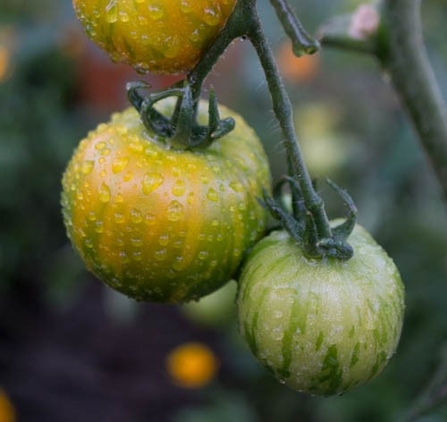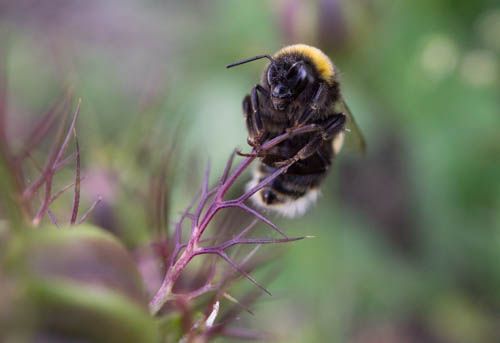Not digging your soil, is gaining a lot of popularity in gardening social media sites. No-dig gardening is a recent innovation, relatively speaking, and is regarded by most of my more traditional allotment neighbours as ‘…nuts!’. However, for me, this approach has enabled me to keep doing something I love, despite having a problems with fatigue.
It is still the case at most allotments that the benefits of digging are exclusively linked to incorporating organic matter and loosening the soil to avoid compaction. Champions of the no-dig technique, like Charles Dowding, get over a million views, with vlogs demonstrating how adding compost to the top of the soil mimics natural ecosystems, simultaneously supporting soil life which does the job of incorporating organic matter.
This process, adding kitchen compost or manure, goes against traditions, like earthing up potatoes. But if there are benefits to earthing up potatoes, I haven’t yet seen them - aside from various plot experts telling me otherwise.
This is not to say that I’m against earthing up, and I’m really not experienced enough to dismiss the benefits. But knowing how much digging can take it out of me, especially having long term fatigue after radiotherapy and early menopause, I love this easier method to work nutrients into the soil.
The thing about allotment gardening, as a girl, with a long term health condition, is that you do tend to get a lot of well-meaning advise from expert plot holders. People who have a wealth of knowledge, but are perhaps sold on their particular approach.
Horticulturalist, Lawrence D Hills said,
“We’re not concerned with proving whether any of our authors whose books are bibles for each separate cult of no-digger are ‘right’ or ‘wrong’. Our purpose is to find a blend of old and new methods that will help us garden with least and lightest work”.
Hills was keen to show us that gardening is for everybody. This is not always immediately obvious. How many newbie gardeners/allotmenters are put off by peat-free debates, or succumb to ‘reduced peat’ options where proportions are only minutely reduced? I know that I’ve fallen under this bracket, and even granting for my increasing interest in homemade compost, safely-sourced manure, leaf mould, I will not be able to produce the quantities required for an entire season on a no-dig plot. The trick is to try your best. - I am getting a feel for these things, and am gardening much more sustainably nowadays.
Anyway, homemade compost is so satisfying to make - it’s easier to trace ingredients, you create something out of kitchen rubbish, and it’s dead satisfying! Plus, knowing where soil comes from helps avoid pesticide damage, such as the damage caused by aminopyralid. Aminopyralid damage stunts plants grown in compost affected by persistent chemical ingredients used in commercial herbicides. I was able to identify an affected source by comparing seedlings sown in contaminated compost vs 'safe' compost. You don't always know what your getting - especially if the soil you buy isn't Soil Association approved - and some products unwittingly contain these herbicides.

Healthy soil, maintaining it through sourcing as much good quality compost as possible, typically results in sturdier plants and better harvests, and the benefits of no-dig have additional results by not breaking up fungal hyphae and bacterial colonies that help crops process essential nutrients or damaging earthworms. These joint outcomes seem to bolster themselves further by precipitating better carbon retention, helping mitigate climate change and boosting biosecurity.
For me, I am not trying to push this approach. Instead, I am looking for the benefits of a gardening approach that works for me - and might work for you, too?
No-dig, healthy compost, reputable sources, minimal effort. These are the central principles in my allotment. Roughly followed it produces a decent harvest low maintenance enough to allow me to keep gardening without completely tiring myself out, consider wildlife habitats by avoiding any peat-based products, and support soil health by looking after microbial networks.
If you find yourself struggling with the constant digging, but are keen to get your hand in the soil, why not give this a try? For me, this hobby has been one of the main things getting me through the barrage of side-effects post cancer - so finding a way to keep at it - without knackering myself out - was very important.
